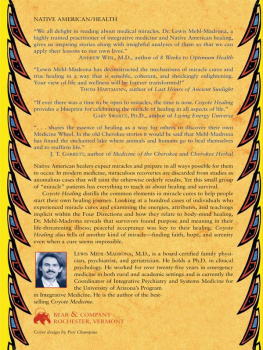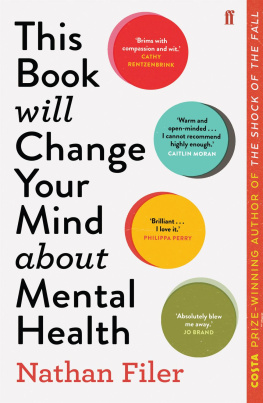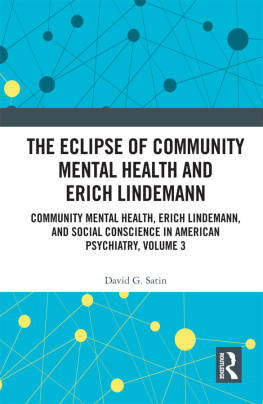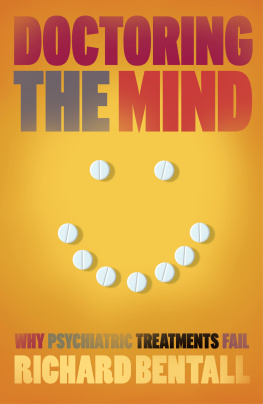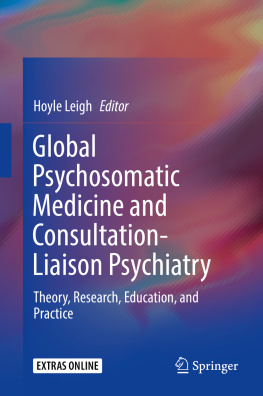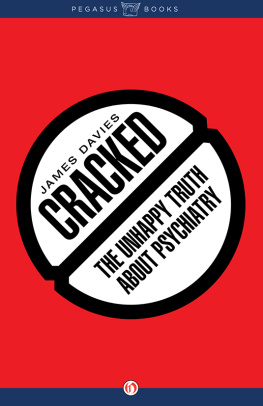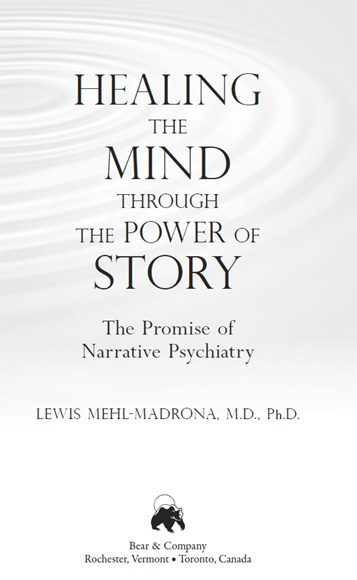
This book is dedicated to my mother, Emily Bradley Mehl, who was not only crazy enough to bring me into the world, which Im sure was not terribly easy in many ways, but who has been there to help me out many times, even though Im supposed to be a grownup and not need help.
Acknowledgments
I want to thank my friends who helped me through the completion of this book, especially Magili Chapman-Quinn, Kitty Ketner, Skyler Madison, Peter Blum, Sheila and Sheldson Lewis, Thomas Vietoricz, Aiyana Stern, Lorna Chase, Gordon Pennycook, and Karin Mack. Each of these people read chapters and gave me invaluable feedback. A big thanks to my Mississippi catfish buddy, Rocky Crocker, for his wonderful support and assistance, and to Barbara Mainguy, with whom I discussed the ideas of this book and who helped me in innumerable ways with making my writing more clear and presenting these ideas that are not always so easy to articulate. Thanks to Andrei Vinogradov, who has been teaching me Russian in between some great conversations, and who taught me that Brezhnev was a minor political figure in the era of Alla Pugachova, the Russian pop star. Thanks to John Charles of Sturgeon Lake First Nation for his healing and support. And thanks to my students at the University of Saskatchewan, who gave me important feedback about the clarity of presentation and the plausibility of these ideas. Thanks to Tony Gee, for much of the editing of this book was completed in the back seat of his car as we drove around Australia, meeting with different aboriginal groups in hopes of inspiring further movement of culture into health care. The remainder of this book was edited on United Airlines, and I thank the flight attendants who took care of me while I completed this work, especially Ted Pizzino. Thanks to my editors at Inner Traditions: Jamaica Burns and Nancy Yeilding, whose help was invaluable.
Contents
Chapter 1
Chapter 2
Chapter 3
Chapter 4
Chapter 5
Chapter 6
Chapter 7
Chapter 8
Chapter 9
Chapter 10
Chapter 11
Chapter 12
Chapter 13
Chapter 14
Chapter 15
Chapter 16
Preface
This book was written during my four years of practicing psychiatry in rural and remote areas of Saskatchewan, Canada, and extends the concepts I developed in my previous work, Narrative Medicine: The Use of History and Story in the Healing Process, into the field of psychiatry. In all of my books, I have struggled to follow the advice of Austrian philosopher Ludwig Wittgenstein (18891951), who urged us to write simply and plainly, without jargon. Wittgenstein believed that technical terms should never be used when plain language would suffice.
In keeping with Wittgensteins vision, I have worked to create a new genre of writing, one that is simultaneously popular and academic, interesting to professionals but accessible to the general public. I disagree with the ideas that ordinary people cannot understand complex concepts and that complex concepts cannot be simply revealed without jargon or technical language.
Besides Wittgenstein, two other figures loom large as my guides for this work: His Crazy Horse and Ohiyesa. His Crazy Horse, which, translated from Lakota, literally means His Horse is Crazy (ca. 18421877), was a Lakota visionary who had an amazing vision. He saw great, gray ribbons stretching across the prairie, on which large bugs were traveling at incredibly fast speeds. People were looking out from many openings in these bugs. His Crazy Horse also saw great birds flying across the sky. Inside these birds were many people, looking out of holes that opened along the length of the bird. They were all coming to learn about healing from the Lakota people.
His Crazy Horse predicted that in seven generations, the children of the conquerors would come to learn Lakota spirituality and healing. They would pick up the ways of the Lakota, to the chagrin of their ancestors. We are now in that seventh generation, and the prophecy is coming true. People of all origins who live in North America are embracing traditional Native spirituality. His Crazy Horse was right, so I write in support of his vision.
OhiyesaCharles Eastman, M.D. (18581939)was an Oglala physician. People have told me that we might be related. I hope so. Eastman lived a traditional Oglala hunter/gatherer lifestyle until his missing father resurfaced when Ohiyesa was fifteen years old. Given up for dead, his father had actually been in a U.S. government prison for the crime of insurgency. Upon his return, he announced that Charles must learn the cunning of the white man. Charles did. He applied himself to the task and graduated from Dartmouth College. He proceeded to study medicine at Boston University. Following his internship, he returned to be the physician at Wounded Knee, South Dakota, and tended the injured at the Massacre of Wounded Knee in 1890. Eastman helped to found the Boy Scouts, blending Oglala cultural symbols into the organization, and inspired the creation of the Order of the Arrow, Scoutings National Honor Society.
Eastman wrote over ten books about Oglala culture and spirituality, some of which are still in print today. He truly tried to blend cultures and to enrich mainstream America with the wisdom of Native America. That has been my goal too. My mother was Cherokee and Scottish, while my father was Oglala Lakota and Quebecoise. So I have attempted to weave an indigenous perspective into all that I write so that the resulting narrative is applicable to both mainstream North America and the indigenous world. I hope Eastman would be proud of my efforts, for he is part of the audience to whom I write. Throughout the writing of this book, I have asked for his spiritual help, along with that of His Crazy Horse, Ludwig Wittgenstein, my grandfather Archie, and any others who could assist.
INTRODUCTION
Theres Nothing But Story
Telling stories is a human universal. It develops spontaneously without training in childhood.
BRIAN BOYD, ON THE ORIGINS OF STORIES:EVOLUTION, COGNITION, AND FICTION
Healing the Mind through the Power of Story furthers the renewal of interest in the importance of story and of individual human lives in medicine and in psychiatry. Stories are a very important source of medical knowledge and wisdom, perhaps even the basic unit of information gathering in medical diagnosis and research, and are the essential ingredient of human relationship and communication. In what has become an increasingly impersonal world, both medicine and society at large are beginning to realize and rediscover the importance of relationship and stories in healing.
At first the concept seems simplistic. Of course we all tell stories: for fun, for entertainment, for camaraderie, but facts are what matter, the results of scientific research, the truth. What I will try to show in this book is that the facts that we worship in our global, modern, industrialized culture are just the summary line of story. Having been a physician now for thirty-four years, I know that the stories science produces change every two years. Its hard to study for exams, for example, because it is often not clear which version of the story will be on the test. In 2005, we didnt think digoxin helped the kind of heart failure that is called diastolic dysfunction, meaning that the heart doesnt fill properly and the amount of blood pumped is below 40 percent of normal. In 2008, we learned that the problem was dosage. Low-dose digoxin did help, while the higher doses we were using didnt. This was a relief because we didnt have to keep checking blood levels with the lower doses that worked better anyway. But on my 2009 geriatrics exam, which would be the right answer to the question, Is digoxin useful for diastolic dysfunction heart failure? That depends on what year the test was written.
Next page

